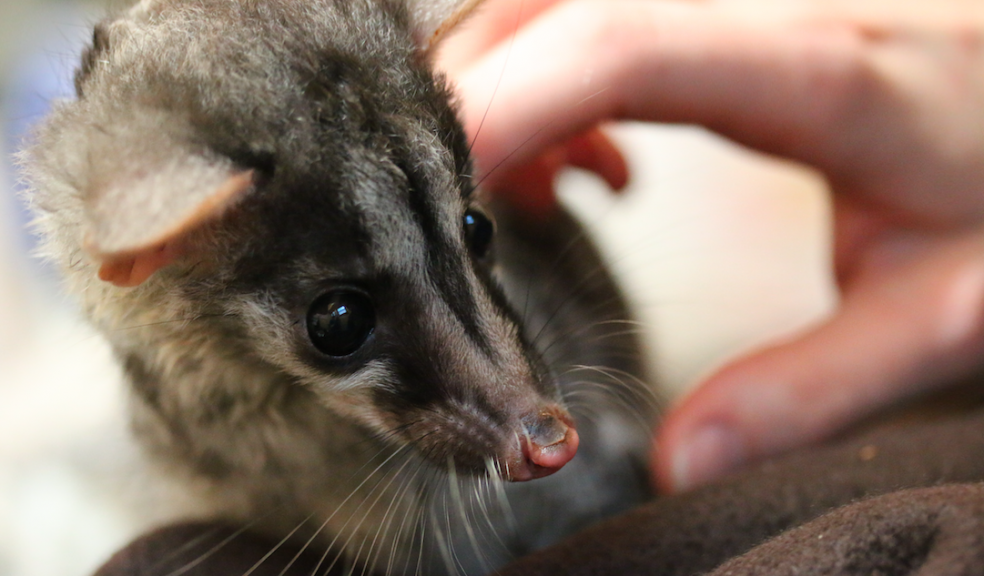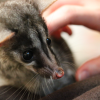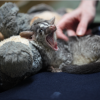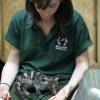
World First at South Devon Zoo
Shaldon Wildlife Trust in Devon is delighted to announce the birth of a very rare Owston’s civet.
One of the most endangered species of civet, the Owston’s is a curious creature native to Asia. With its long nose, cat-like whiskers and slender mongoose body, it would be well suited to the pages of a Roald Dahl storybook!
This is an exceptionally special birth as the population in the world’s conservation breeding programme currently totals less than 20 animals.
Mum and Dad, Hoi Dau and Lam, are very important genetically, therefore successful reproduction has been our main goal for the past few years. Unfortunately, Lam is not a good mother and until now the young have never survived.
After lengthy discussions with the veterinary team at Teignview Vets in Teignmouth, the decision was made to perform a caesarean section on Lam after ultrasound scans showed that the baby was ready to be born. This is a world first, as never before have the vets in Teignmouth – or indeed anywhere else - ever performed this surgery on a civet.
Staff at the zoo then had to undertake parental duties, involving syringe feeding the newborn every two hours. This was a nerve-wracking time for Zoo director, Nic Dunn, who took on the duties in the first weeks. “I just got used to never having more than a few hours sleep, it was so important to get baby to make it through those important first few weeks – I can catch up on sleep later in the year!”.
The baby, who has been christened Rosie (after one of the vet team involved in the delivery) is now 7 weeks old. Staff are beginning the weaning process, becoming less hands-on in order for her to grow and develop normal behaviours.
These civets eat a variety of insects and crabs in the wild so we are beginning to offer earthworms, but Rosie is far more interested in playing with them at the moment.
It is still early days but the whole team are extremely excited about Rosie’s development, and her potential within the Owston’s civet breeding programme. Visitors will have to wait a little longer to see Rosie at the zoo; she is expected to be in her new enclosure in a few weeks’ time.






















